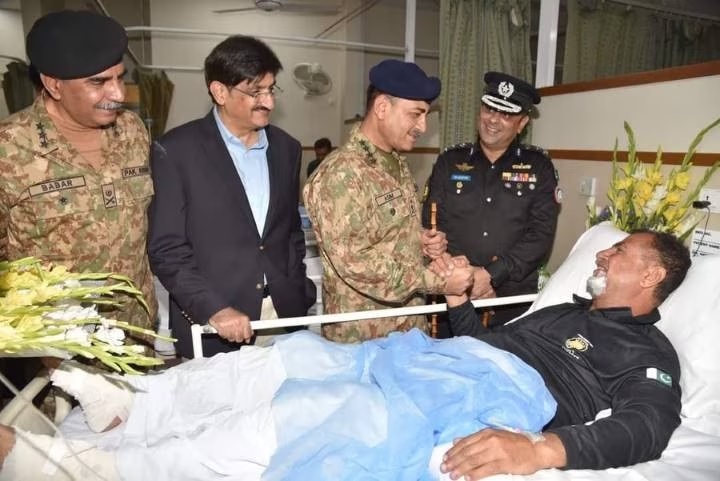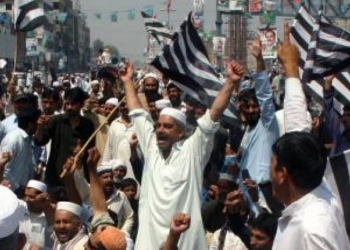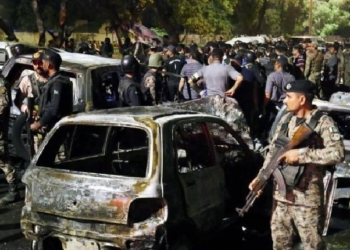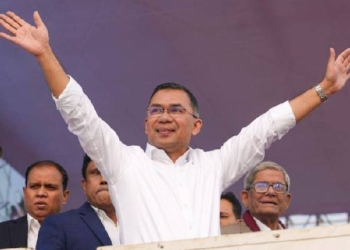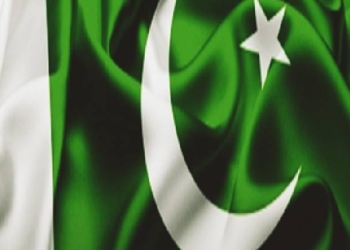New Delhi: At least 12 Pakistani soldiers were killed in two separate attacks in Balochistan and three armed personnel were injured in another attack in Sindh on Wednesday. This was one of the deadliest attacks on the Pakistani Army since February 2022 attacks by Baloch fighters on the Pakistani military camps in Kech, Panjgur and Noshki.
Nine Pakistani soldiers were killed when the Teḥreek-e-Jihad Pakistan (TJP), a new outfit that claims affiliation to the Tehreek-e-Taliban Pakistan (TTP), attacked the Zhob garrison of the Pakistani Army in northern Balochistan. This is the TJP’s third and its deadliest attack on the security forces this year.
Pakistani security forces have been under an onslaught ever since the Taliban seized power in Afghanistan in August 2021 and large numbers of Taliban fighters made their way to Pakistan to establish an Islamic entity just like Afghanistan. Since then the number of attacks on the Pakistani security forces in Khyber Pakhtunkhwa and Balochistan have gone up dramatically with hundreds of casualties.
The Khorasan Diary says that the “mysterious group is actually a cover for other major outfits in the country, such as the Tehreek-e-Taliban Pakistan (TTP) or Hafiz Gul Bahadur.” Terror outfits in the Af-Pak region are known to change names and seek attention to deflect intelligence agencies and take away the heat from mainline terror groups.
Besides the nine soldiers, one woman and killed and five civilians were injured in the fight between the TJP and the Pakistani Army. The Inter-Services Public Relations (ISPR) – Pakistani Army’s public relations agency issued a number of statements following the attacks. It said that the security operation at “Zhob Cantt has been completed, and in total five terrorists have been killed during the operation”.
In a second attack on Pakistani security forces in the oil-rich Sui region in Dera Bugti district, three more soldiers lost their lives. The attack was claimed by the Baloch Liberation Tigers (BLT), which has reportedly become active after lying low for years. It has earlier been targeting gas fields, pipelines and government infrastructure in Balochistan.
In a statement, BLT spokesman Miran Baloch said that it carried out the operation as the Pakistani army had launched a military operation on the local population in Rais Tokh and Gurdo Navah areas of Sui in Dera Bugti, Balochistan. The spokesman said BLT fighters reached the area to defend the common people where clashes continued throughout the day. The statement said that BLT seized two military vehicles and set them on fire.
In yet another attack, the third such attack on the same day on Pakistani security forces, the Sindhudesh Revolutionary Army (SRA) planted an improvised explosive device (IED) in a motorcycle and blew it up with a remote-control near a vehicle of the Counter-Terrorism Department (CTD) in Karachi. As the CTD vehicle was bullet-proof, security personnel escaped with injuries.
The SRA has been running a low-level insurgency against Pakistan, seeking independence for Sindh. However, one of its biggest hits was its claim of killing Syed Khalid Raza – former commander of Kashmiri terror outfit Al Badr in Karachi with a single shot.
It has also voiced its opposition against the demographic change being imposed in Sindh with the resettlement of Afghan and Pashtun communities. The SRA has targeted Chinese nationals as well as Pakistani coast guard personnel.
The Associated Press of Pakistan (APP) said that Prime Minister Shehbaz Sharif paid tributes to the dead soldiers and said that their sacrifice would be remembered forever.
Pakistan is bearing the brunt of severe conflicts across the nation as the region is flush with weapons and heavily-trained terror groups and battle-hardened fighters. The Pakistani government’s alienation of many of its ethnic communities like the Pashtuns, the Baloch and the Sindhis too has bred resentment among the people, many of who have taken up arms against the Pakistani forces – the army, the paramilitary, the intelligence agencies and even the coast guard.
(IANS)




